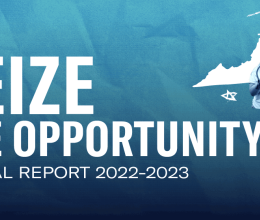
Richmond, VA -- Claire Guthrie Gastañaga, Executive Director of the ACLU of Virginia, released the following statement regarding the ACLU’s release of “You are Being Tracked,” the ACLU’s report on the increasingly pervasive use of license plate scanners by police departments across the country.
Automated License Plate Readers (ALPRs) present a real threat to Virginians’ privacy. Anyone who believes this technology isn’t a problem needs to understand its potential use as a tool for mass and routine tracking and surveillance. License plate scanners are not only being used to look for particular cars used by particular suspects involved in specific criminal cases, but for tracking and recording everybody’s whereabouts in a database that can be checked by law enforcement (or other governmental agency) to see if you were someplace at particular time or day. Some of this data is already being collected in so-called fusion centers. Left unchecked, we will eventually see construction of a de facto national database.
There are certainly ways in which police can both use this technology for legitimate law enforcement and at the same time protect privacy. The ACLU doesn’t have a problem with ALPRs when used for narrowly tailored law enforcement purposes, such as identifying vehicles that are stolen, involved in a crime, or associated with fugitives. Those narrow activities themselves, if done right, are a reasonable use of technology, because they are focused solely on people accused of wrongdoing. But there’s no justification for passive use of ALPR’s to build data bases for use at some future time. Virginia must ensure we have clear laws preventing authorities from tracking innocent people whether using APLR’s, drones, cell phone GPS or other technologies as yet undiscovered.
In March, the ACLU of Virginia commended Attorney General Ken Cuccinelli for his opinion interpreting Virginia’s Government Data Collection and Dissemination Act to strike the correct balance on the use of ALPRs and privacy protections in Virginia. But an AG’s opinion isn’t the final word on the law, and we need to look at whether changes are needed to ensure that the Act is always understood to preclude the use of ALPR’s except in active investigations for specific people suspected of criminal activity.
A copy of the ACLU’s report, an interactive map with links to documents, and an interactive slide show can be found online at: www.aclu.org/plates



